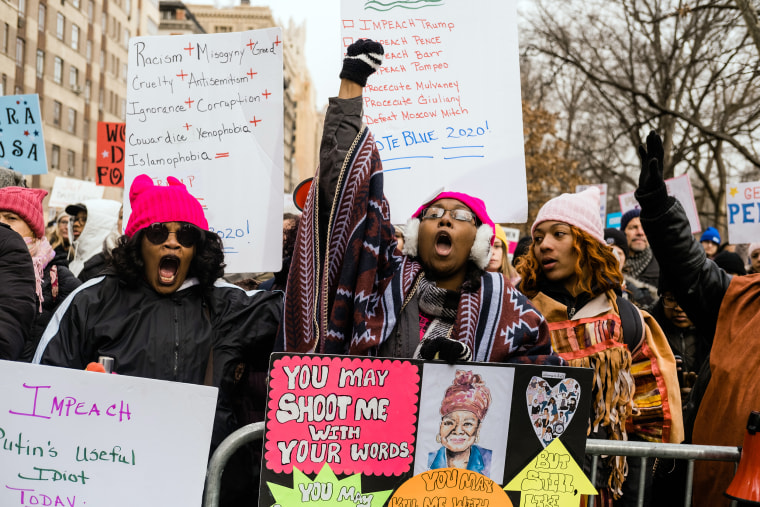In 2013, a Minnesota woman named Rae Florek accused her boyfriend, Randy Vanett of raping her while she was unconscious and unable to consent. Florek says she knew Vanett raped her because he boasted about having sex with her while she was asleep. She later secretly taped him confessing again. Then he repeated his confession to law enforcement. But the police refused to press criminal charges. "There's always two sides to every story," Detective Dean Sherf told Florek — even though, in this case, Vanett repeatedly agreed to the facts. Vanett, and the police, simply felt that having sex with a woman while she slept was not a crime.
Kate Manne argues that misogyny is not really about dehumanization. Interpersonal violence is a thing you do to persons, not to inanimate objects.
Many feminists have argued that this kind of sexism is caused by the fact that women are not seen as fully human. But in her new book, “Entitled,” which discusses Florek's story, Cornell University philosophy professor Kate Manne argues that misogyny is not really about dehumanization. Interpersonal violence is a thing you do to persons, not to inanimate objects. Vanett and Sherf knew Florek was human, Manne argues. They simply believed that Vanett, as a man, was entitled to Florek's body and her consent.
"Dehumanization makes it sound like there's something psychologically missing that leads to misogyny and sexism," Manne told me. "And I think it's quite a big shift to think about the basis for misogyny instead being a false kind of moralism. It's not that we misperceive what women are. We have a mistaken moral ideology of what women are for. And what we believe they're for is to provide the sorts of goods that we think men are entitled to."
Those goods include sex. But even more than that, Manne argues, people believe men are entitled to deference and praise. Involuntary celibates, or incels, for example, are men who form communities to complain about the fact that women will not have sex with them. But Manne points out that their real complaint is often that they are not receiving the right kind of attention from the right kind of women.
Elliot Rodgers, an incel who killed six people in Isla Vista, California, in 2014, recorded misogynist rants about how "popular kids … looked down upon me." For incels, Manne says, "sex is a proxy for the things that they are ultimately after and feel entitled to: a sense of admiration and affection."
For men like Vanett and Rodgers, entitlement can lead to violence. But while too much entitlement is bad, a lack of entitlement can almost be worse. Misogyny can make men feel entitled to women's care and veneration. But, Manne says, it is can also lead to women being treated as if they are not entitled to kindness, or consideration. Women still do a disproportionate share of housework. Female candidates for president are still seen as overly ambitious compared to their male competitors. Culturally, men are seen as entitled to free time at home, or to presidential dreams. Women are not.
Manne notes that women, and especially Black women, are not even always entitled to medical care. She cites Diane E. Hoffmann and Anita J. Tarzian's paper "The Girl Who Cried Pain," which concluded that men often receive more pain medication than women for the same conditions.
The frighteningly high maternity mortality rates for Black women are in part the result of ideas about who is and is not entitled to speak on medical matters. When Black women advocate for themselves, they can be seen as being disrespectful to doctors and nurses. "Everything about the structure of trying to get medical care had filtered me through assumptions of my own incompetence," essayist and scholar Tressie McMillan Cottom wrote about complications of her pregnancy that led to the death of her daughter. "The health care machine could not imagine me as competent and so it neglected and ignored me until I was incompetent."
Manne argues that sexism's real power stems from a system built on morality, respectability and, yes, entitlement. When men are denied power and pleasure, or when women aspire to those things, Manne writes, people of all genders are outraged. Brett Kavanaugh and his supporters not only denied that he had attempted to rape Christine Blasey-Ford. They were angry that his right to a Supreme Court seat had been questioned. President Donald Trump, for example, said that Kavanaugh "was born" for a Supreme Court seat, and insisted, "We have to fight for him, not worry about the other side, and, by the way, women are for that more than anybody would understand.”
Just as disturbingly, women who ask for pain medication or who refuse men sex may feel shame. Manne says that even when women do not want sex, they sometimes consent "because we're living in a world where men are deemed entitled to have consent from women. And so consent will often be given in a way that's not coerced in the sense of interpersonal coercion, but is coerced by prevalent social scripts and the sense of obligation that they can generate for women."
Pushing back against sexism is doubly difficult when sexism has so profoundly shaped our sense of right and wrong, and of who deserves power, happiness and affection. Manne says that in the past she's felt that overturning male entitlement might be an impossible task.
But since she's had a new daughter, she's had a renewed sense of its urgency. "I want my daughter to know that she is entitled to be powerful," she writes. "I want her to know, unlike so many girls and women, that she is lovable and forgivable, even if and when she falters." Acknowledging women are human isn't enough.
CORRECTION (Aug. 12, 2020, 10:00 a.m. ET): A previous version of this article misspelled the title of Kate Manne's book. It is "Entitled," not "Entitlement."



